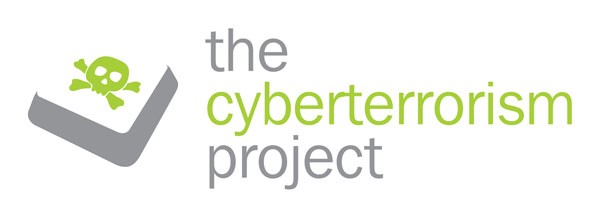The Cyber Terrorism Project at Swansea University hosted a two day symposium from the 5th June - 6th June 2014, entitled ‘Terrorists’ Use of the Internet’, that saw a range of different experts from across the globe present papers on various different aspects of terrorism online. Reflecting the international and multi-disciplinary nature of the project speakers came from the UK, Europe, Canada, and Australia and representing a range of different academic backgrounds as well as public bodies, industry and the intelligence community.
A summary of each paper presented at the conference along with our findings is available in the conference report. In addition to this there is a one page executive summary which summarises the conference findings.
‘Electronic Jihad’: The Internet as Al-Qaeda’s Catalyst for Global Terror – Martin Rudner, Carleton University
Professor Martin Rudner (Research Professor Emeritus at Carleton University, Ottawa, Canada) opens the symposium with his paper on electronic jihad.
‘#Westgate’: A Case Study – David Mair, Swansea University
David Mair (PhD student at Swansea University) presents his paper on live tweeting by al-Shabaab during the Westgate attacks.
‘The Call to Jihad: The Role of Internet Preachers’ - Angela Gendron, Carleton University
Angela Gendron (Carleton University) opens the second panel of the symposium with her paper on radicalisation and the role of internet preachers.
‘Waging War on the Ideological Battleground’ - Dr Anne Aly, Curtin University
Dr Anne Aly (Curtin University) presents her paper on terroristic narratives and counter narratives online.
‘Weighing the Role of the Internet in Past, Present, and Future Terrorism’ - Dr Maura Conway, Dublin City University
Dr Maura Conway (Dublin City University) brings the second panel of the day to a close with her paper on the role of the internet in past, present, and future terrorism.
‘Estimating the Likelihood of Cyberterrorism From a Cost-Damage Perspective’ - Professor Tom Chen, City University
Professor Tom Chen (City University, London, UK) presents his paper that uses cost-damage modelling to assess the likelihood of a cyberterrorist attack.
”Imagining Cyberterrorism”: How US Presidents Constructed Cyberterrorism’ - Lella Nouri, Swansea University
Lella Nouri (Swansea University) presents her paper on representations of cyberterrorism in elite US political discourse.
‘Constructing Cyberterrorism within the Internet Security Industry’ - Andrew Whiting, Swansea University
Andrew Whiting (Swansea University) presents his paper investigating the construction of cyberterrorism within the internet security industry.
Illegal Cyber-Operations and the concept of ‘Positive Obligations’ of States’ - Dr Karine Bannelier-Christakis
Dr Karine Bannelier-Christakis (University of Grenoble-Alps) investigates the legal responsibilities states have in responding to cyber-attacks vis-à-vis other states in relation to the concept of ‘positive obligation’.
‘The tension between surveillance, privacy and the rule of law within cyberspace’ - Dr Inger Marie Sunde
Dr Inger Marie Sunde (Norwegian Police University College) presents her paper on the tension between surveillance, privacy and the rule of law within cyberspace.
‘Cyber Surveillance from a Security Perspective’ - Sergei Boeke
Sergei Boeke (Leiden University) discusses the issue of cyber surveillance paying particular attention to security and privacy concerns.
‘An Assessment Model of Improving National Cyber Security Posture’ - Ünal Tatar
Ünal Tatar (National Cyber Security Institute of Turkey) presents his ongoing research which aims to create an assessment model for the purpose of improving national cybersecurity postures.
‘Dataveillance and Terrorism’ - Dr Stuart Macdonald
Dr Stuart MacDonald (Swansea University) presents his paper on dataveillance.
‘The Public/Private Partnership in Cyber Security’ - Dr Madeline Carr
Dr Madeline Carr (Aberysthwyth University) presents on the relationship between the public and private sectors within the field of cybersecurity.
